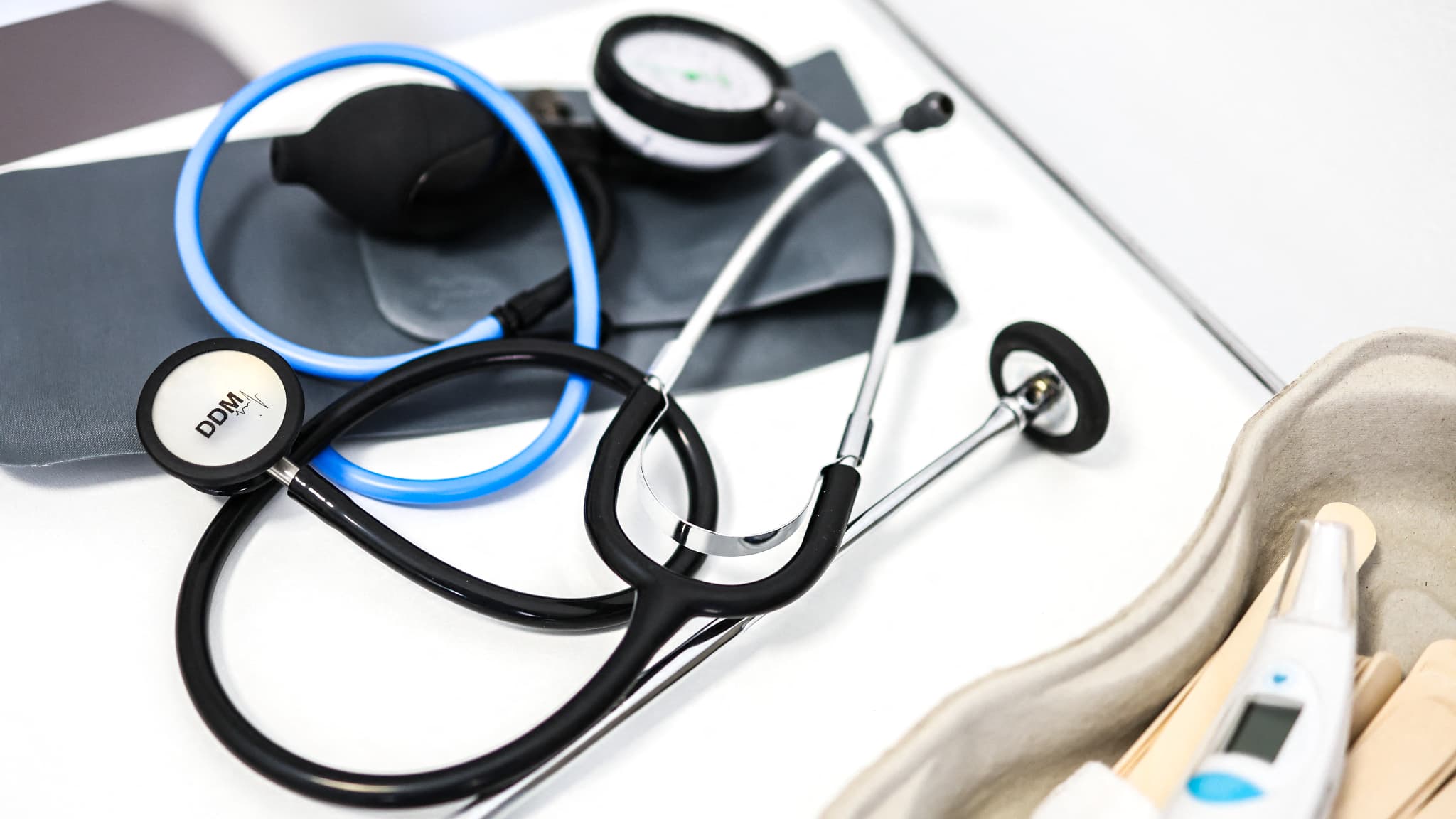The study, published Tuesday in the journal eBioMedicine, suggests using a test to measure arterial stiffness to detect risk for cardiovascular disease.
Another step towards preventing cardiovascular risk? The study, published Tuesday, April 16, in the journal eBioMedicine, offers a new tool for identifying risk for heart and artery disease.
Cardiovascular disease is the second leading cause of death in France after cancer, causing more than 140,000 deaths a year, according to the Ministry of Health website. They can lead to complications such as heart attack, stroke or heart failure, mainly due to a blockage in the artery that prevents blood from flowing to the heart or brain.
A new way to detect risk?
The likelihood of developing a cardiovascular disease or accident can be measured depending on a person’s various risk factors (age, gender, family history, smoking, etc.). A study presented this Wednesday by the medical research institute Inserm suggests that studying arterial stiffness will reveal this risk.
Researchers from Inserm, the University of Lorraine and CHRU Nancy wanted to determine whether CAVI (Cardio-Ankle-Vascular Index), a tool for measuring arterial stiffness, could be used to identify cardiovascular risk. CAVI is measured using two cuffs on each arm, two more on the ankles, and a microphone on the heart.
“Fast and non-invasive” tool
To do this, scientists followed 1,250 people from 18 European countries over the age of 40. They “provided their medical history and underwent a physical examination, including an assessment of arterial stiffness using the CAVI measurement tool,” Inserm explains in a press release. These people were then called back for a follow-up examination after two years, and some had another examination five years after the first measurement.
Result: For every 10% increase in arterial stiffness, the risk of cardiovascular events increased by 25% in the years following measurement. Which confirms the findings of other studies: arterial stiffness contributes to cardiovascular risk. Thus, its detection using CAVI would allow this risk to be anticipated.
“Our results suggest that the CAVI index may provide a simple, rapid and non-invasive measurement tool for predicting cardiovascular risk. Its use may appear in the future among the tests recommended in the clinic for predicting cardiovascular risk.” provide them with preventive monitoring,” says cardiologist Magnus Beck, first author of the study cited in the Inserm press release.
Artery stiffness increases with age
According to this study, arterial stiffness increases with age and increased blood pressure. But the researchers found that “treatment for cholesterol or diabetes affects the rate at which artery stiffness progresses”: they can slow it down.
The likelihood of developing cardiovascular disease or cardiovascular disease is higher after age 50 in men and after age 60 in women, in people whose close relatives had cardiovascular disease at an early age, smoking, diabetes, cholesterol or even high blood pressure , according to the health insurance website.




